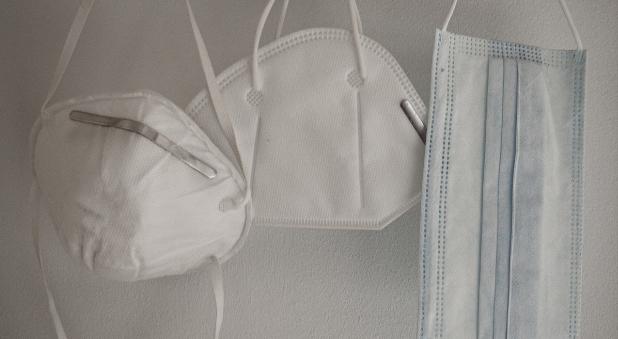Have you ever received a gift that you did not want? A number of years ago I asked my father to buy me a cast-iron griddle pan, but he decided to give it to my wife Pearl instead. I was delighted. She was less than impressed. Not every gift is something we want.
I received a gift I didn’t want recently. Despite abundant caution and double vaccination I received a bad case of COVID-19. And it really was bad. I cannot remember feeling so ill in my life. Even a month later I’m still in the process of recovery. Yet, despite all that, and amid recognition of all the pain and loss it has caused so many, I still consider it a gift.
Like many Christian leaders in our tradition I lean towards activism. Always seeking to be active and to find myself doing things – especially when it comes to building God’s church and making disciples. If the idea of rest wasn’t biblical it could easily be an afterthought for me.
So, when I found myself falling ill, it became increasingly confronting because not only was I sick, I wasn’t productive.
I had to cancel a speaking engagement that I’d spent months thinking about and preparing for. I couldn’t visit anyone as I was stuck in isolation. I was too sick to talk to anyone on the phone. I couldn’t respond to emails. I couldn’t even read books.
Not only was I sick, I wasn’t productive.
All this “free” time and I couldn’t do anything. I was sick. And although I was unable to “do” the normal things in my day, COVID did provide me with time to pause and reflect.
The conference I planned to speak at found a replacement and went on without me. The COVID-19 Task Force that I lead continued to do its work in supporting churches and providing advice. The emails I didn’t respond to turned out to be neither urgent nor critical.
The sun still rose, birds still sang and the gospel continued to go out and change people’s lives… without me.
This reminded me that while God uses us and gives us gifts for the common good and to serve those around us, this doesn’t mean he relies on our activity in order to achieve his plans.
And there are times when the best thing we can do for God and for the sake of the kingdom is nothing.
I realised this while speaking to the Archbishop, who was asking after my health. I found myself saying, “I really can’t do anything at the moment. I’m not well enough. The best thing I can do is to do nothing and just get better”.
It’s good to be active and engaged in the service of our Lord, but there are seasons in life, such as illness, where service means something very different to what we are used to.
Being ill was horrible, but it reminded me of some very important things. It became a gift to me. And it can be a gift to others as well.
Turn struggle into blessing
In 2 Corinthians 1:3-4 the Apostle Paul writes this: “Praise be to the God and Father of our Lord Jesus Christ, the Father of compassion and the God of all comfort, who comforts us in all our troubles, so that we can comfort those in any trouble with the comfort we ourselves receive from God”.
While Paul isn’t speaking about illness in particular, there is a sense that those moments of vulnerability and anxiety – especially when we are confronted by the reality of our own mortality – cause us to flee to God for help and comfort. When we receive it, it allows us to be a blessing to those around us who are going through the same thing.
For example, my mother and father both had life-threatening cancer. My father had it twice. And having a family member with cancer is a unique and at times harrowing experience. I would never wish to go through those times ever again, but God has used them to help me help others, both pastorally and personally.
It’s the same with catching COVID-19. One of the things that surprised me was that, despite my deep trust in the Lord Jesus and the unshakeable certainty of my own salvation, I wasn’t as brave or as stoic as I thought I would be. I was impatient and miserable – even scared at times.
And I thought, if this is just COVID-19, which I’ll probably recover from, what will I be like when I age or develop a chronic illness or face something like cancer? What will I do then?
This humbled me, and forced me to realise that our confidence doesn’t lie in ourselves or the strength of our faith, but who we have faith in. The one who is the source of our strength, even amid our weakness.
In other words, going through this experience helped me develop empathy, not only for those who’ve had COVID-19, but all those who suffer and know that they’re supposed to be brave because they trust Jesus, but are actually scared and really feel terrible.
It’s helped me understand that feeling like this isn’t a “spiritual weakness” that needs to be addressed, but an opportunity to love somebody and share in their suffering. Knowing, from personal experience, when is the right time to point them to God’s goodness, while knowing when to say nothing because it wouldn’t be helpful.
COVID-19 was a gift that I didn’t ask for but, by God’s grace, some unwanted gifts are more useful than others.






















